An der AI.BAY2023 nehmen renommierte internationale Akademiker, führende Industrievertreter und aufstrebende Talente teil. Nachstehend finden Sie ihre Namen, (wichtigsten) Zugehörigkeiten und einen Kurzlebenslauf.
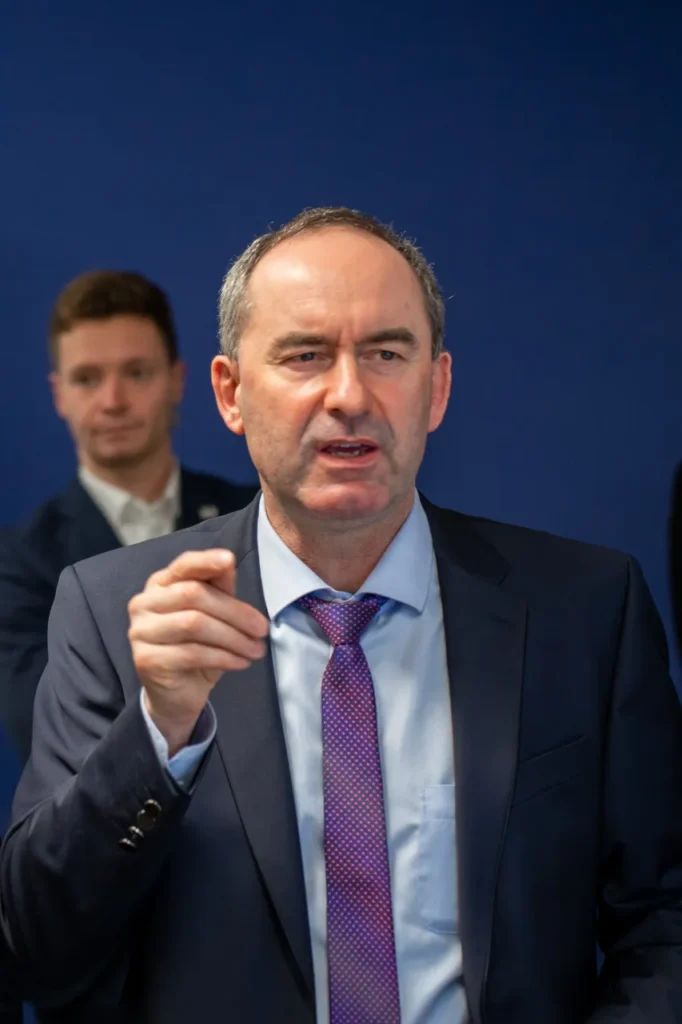
State Minister of Economic Affairs, Bavarian State Government
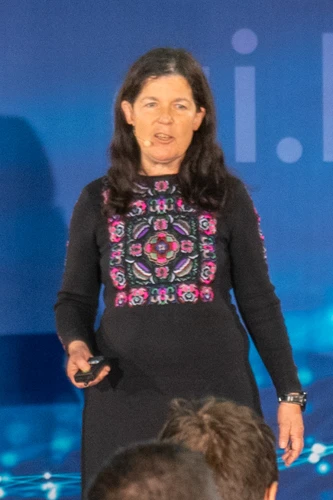
Chair for Human-Centered Artificial Intelligence at University of Augsburg
Member of the Editorial Board of multiple computer science publications
Elisabeth André is a full professor of Computer Science and Founding Chair of Human-Centered Artificial Intelligence at Augsburg University in Germany.
Her work has won many awards including the Gottfried Wilhelm Leibnitz Prize 2021 of the German Research Foundation (DFG). In 2019, she was named one of the 10 most influential figures in the history of AI in Germany by the National Society for Informatics (GI). Elisabeth André is a member of the Bavarian Academy of Sciences and Humanities, the Academy of Europe and the German Academy of Sciences Leopoldina.
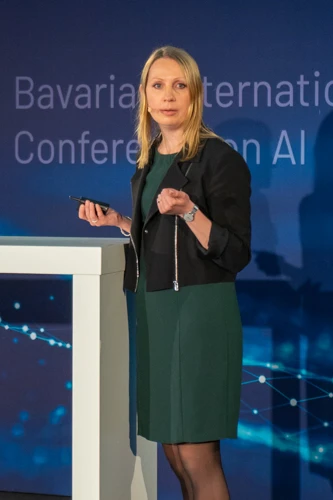
Head Data Science, Roche Innovation Center Munich
Anna is a Bioinformatician by training and leads the Analytics Chapter Roche Pharma Research and Early Development. Her team supports pre-clinical and clinical research teams through data management and data analysis, applying in particular Artificial Intelligence methods.
We are analyzing high-dimensional data such as imaging data, genomic information, and data from electronic health records to better understand diseases and develop personalized therapies. Anna holds a PhD in Bioinformatics and Biomedical Informatics from the University of Pompeu Fabra in Barcelona and Master in Bioinformatics from the Ludwig-Maximilians-Universität and the Technische Universität München. She completed her postdoc education at the Faculty of Biomedical Informatics at Stanford University in the USA.
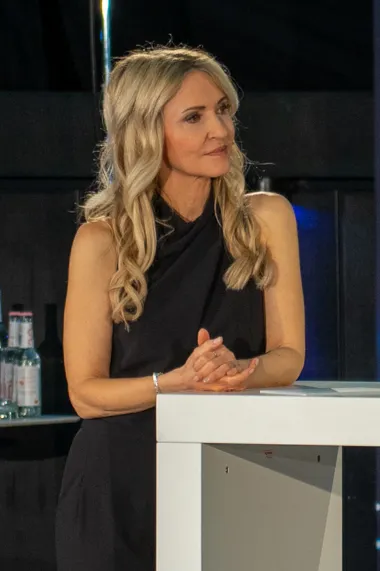
Host
Journalism has fascinated Petra Bindl since her schooldays, so it was no surprise that she wanted to get to know the media landscape a little better after successfully completing her studies in business administration at the University of Erlangen-Nuremberg (with a focus on marketing and communications science). An internship at the radio station ANTENNE BAYERN finally ensured her entry into a business that she still enjoys today.
Petra Bindl started her TV career at DSF. Further stations included PREMIERE/SKY Deutschland, DW-TV, EUROSPORT and ZDF. But it is not only the sporting events around the world that fascinate her to this day and about which she provides information in a wide variety of broadcast formats.
Her journalistic know-how and her naturalness make the Nuremberg native, who lives in Munich, a much sought-after presenter for events, galas, press conferences, trade fairs, panel discussions, etc., both nationally and internationally. – on a national as well as international stage.
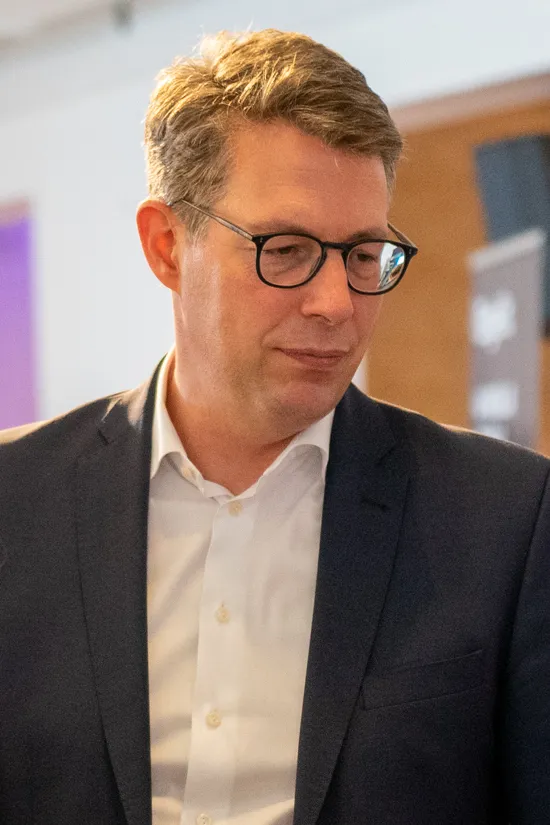
State Minister of Science and the Arts, Bavarian State Government
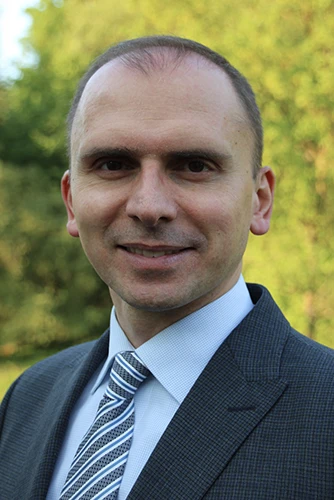
Wiss. Leiter Institut AImotion Bavaria, Hochschule Ingolstadt, Scientific Director, AImotion Bavaria
Michael Botsch studied electrical engineering and information technology at TU München (1999-2005), where he also received his doctorate with the thesis „Machine Learning Techniques for Time Series Classification“. Between 2008-2013 he worked at Audi AG in the area of active vehicle safety. From 2013-2018 Michael Botsch was the holder of the endowed professorship “Vehicle Safety and Signal Processing” of Audi AG at TH Ingolstadt. Since 2018 he is a research professor at TH Ingolstadt, where he was the deputy scientific director of the CARISSMA research center up to 2020. Since then, he is the scientific director of the research institute AImotion Bavaria and he has taken on the role of spokesperson for the Bavarian AI Mobility Node as part of the Hightech Agenda Bavaria. Michael Botsch is also the course director of the master’s program Automated Driving and Vehicle Safety at TH Ingolstadt.

Fraunhofer-Institut für Integrierte Schaltungen IIS
2006 – 2008: Tampere University of Technology – MSc Information Technology, Major: Mulitmedia
Technische Universität Ilmenau: PhD
2007 – present: Fraunhofer IlS – Research Engineer Digital Camera, Senior Engineer Moving Picture Technologies, Deputy Group Manager Digital Camera, Group Manager Medical Image Processing

Founding Chair, Department Engineering at University of Technology Nuremberg
Professor for Robotics and Artificial Intelligence at University of Technology Nuremberg
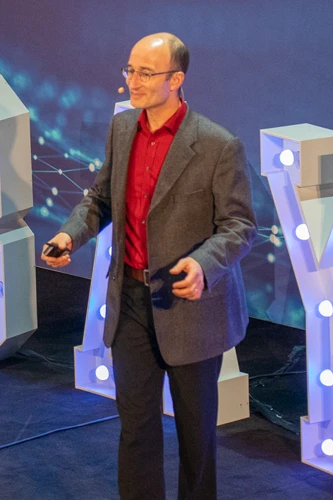
Director Munich Center for Machine Learning; Chair of Computer Vision and Artificial Intelligence, Technical University of Munich
Daniel Cremers holds the Chair of Computer Vision and Artificial Intelligence at TU Munich. He is Director of the Munich Center for Machine Learning, of the Munich Data Science Institute and of ELLIS Munich. He is member of the Bavarian Academy of Sciences and Humanities. In December 2010 he was listed among „Germany’s top 40 researchers below 40“ (Capital). In 2016, he received the Gottfried Wilhelm Leibniz Award. In 2022, he was listed among the top 10 most influential scholars in robotics of the last decade. He is co-founder and advisor of numerous startups.
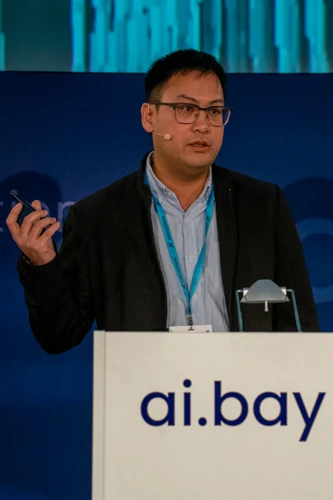
Senior Scientist, Fraunhofer IKS; Lecturer at Technical University of Munich
Daniel Cremers holds the Chair of Computer Vision and Artificial Intelligence at TU Munich. He is Director of the Munich Center for Machine Learning, of the Munich Data Science Institute and of ELLIS Munich. He is member of the Bavarian Academy of Sciences and Humanities. In December 2010 he was listed among „Germany’s top 40 researchers below 40“ (Capital). In 2016, he received the Gottfried Wilhelm Leibniz Award. In 2022, he was listed among the top 10 most influential scholars in robotics of the last decade. He is co-founder and advisor of numerous startups.
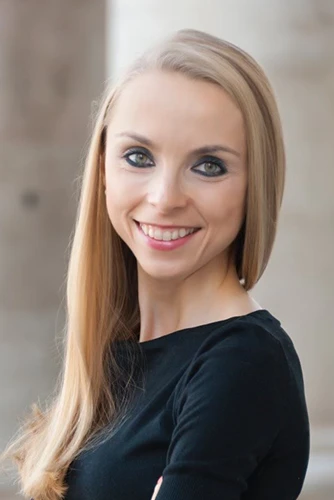
Head of Product Management, Cloud Artificial Intelligence Industry Solutions, Google
Ewa leads Product Management for Cloud Artificial Intelligence at Google, California. She owns an MBA from Harvard Business School and has a multi-year experience as an entrepreneur and management consultant. She brings in a global perspective: worked and studied across six continents and is fluent in six languages. Interestingly, Ewa comes from a musician family and used to professionally play in the orchestra as first violinist. She is a passionate marathon runner, motorcycle rider and holder of a helicopter private pilot license.
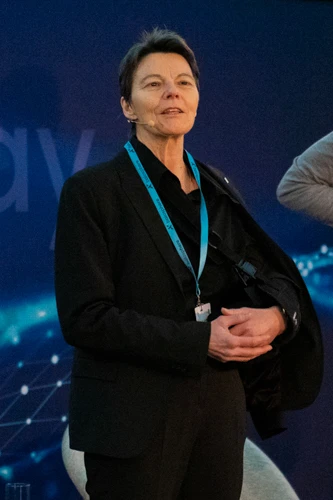
Director of Fraunhofer Institute for Applied and Integrated Safety [AIESEC]
Chair for IT Security at Technical University of Munich
Member of the Supervisory Board of Airbus Group
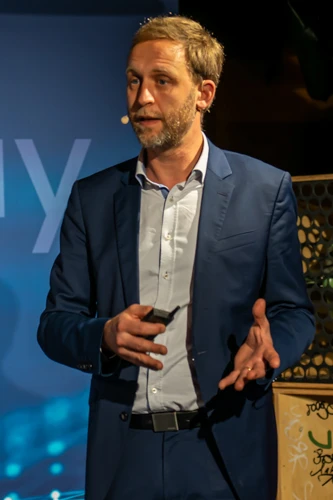
Head of the Chair, Department Artificial Intelligence in Biomedical Engineering (AIBE), Friedrich-Alexander University Erlangen-Nuremberg (FAU)
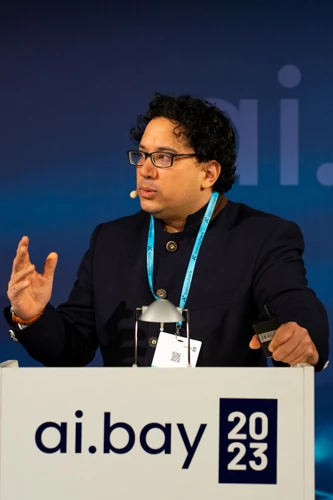
Chair in Digital Health with a Focus on Data Science in the Life Sciences, University of Bayreuth; Director UKRI Center AI for Healthcare, Imperial College London
Aldo Faisal (@FaisalLab) is Professor of AI & Neuroscience at Imperial College London. He is Founding Director of the £20Mio UKRI Centre for Doctoral Training in AI for Healthcare at Imperial College London.
He is also Chair in Digital Health at the University of Bayreuth. His own research labs are the Behaviour Analytics Lab at the Data Science Institute and the Brain & Behaviour Lab at the Dept. of Bioengineering and Dept. of Computing. He is Associate Editor for Nature Scientific Data and PLOS Computational Neuroscience and acted as program chair/area chair in key conferences (e.g.KDD, Neurotechnix, NIPS, IEEE Body Sensor Networks). He was elected in 2016 to the Global Futures Council of the World Economic Forum (Davos), named Associate Group Head @MRC London Institute of Medical Sciences and made an honorary senior fellow of Oxford University’s Nuffield Department of Clinical Neuroscience. Dr Faisal’s expertise lies in combining data-driven methods, machine learning and human behaviour and neuroscience to develop novel human-aware AI technology that helps people in health and disease.
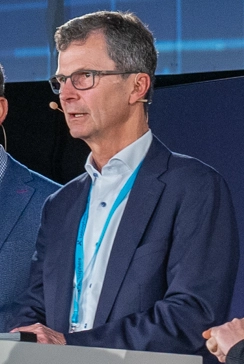
Executive VP, Research and Predevelopment at Siemens Technology
Vice Chairman of the SHS Supervisory Board
Dr. Norbert Gaus, Executive Vice President at Siemens Technology, is responsible for Research & Pre-Development at Siemens. After earning a degree in electrical engineering from Technical University Munich, he initially worked as a research assistant at the German Aerospace Center. During that time he earned a Ph.D. in engineering from Ruhr University Bochum. He joined Siemens AG Technology in 1991. Between 1994 and 2001, Gaus held various positions in the Information and Communication Networks Group with the rank of Vice President. In the following four years, he served as President and CEO of Siemens Corporate Research Inc, Princeton, NJ, USA. From 2005 to when he assumed his current position, he held various executive positions in Siemens Healthcare, ultimately as CEO of the Customer Solutions Division (Sales and Service for Siemens Healthcare, HIS Business Unit) of Siemens Healthcare. Since May 2015 he is in his current position at Siemens Technology. In March 2018 he was also appointed as Deputy Chairman of the Supervisory Board of Siemens Healthineers AG.
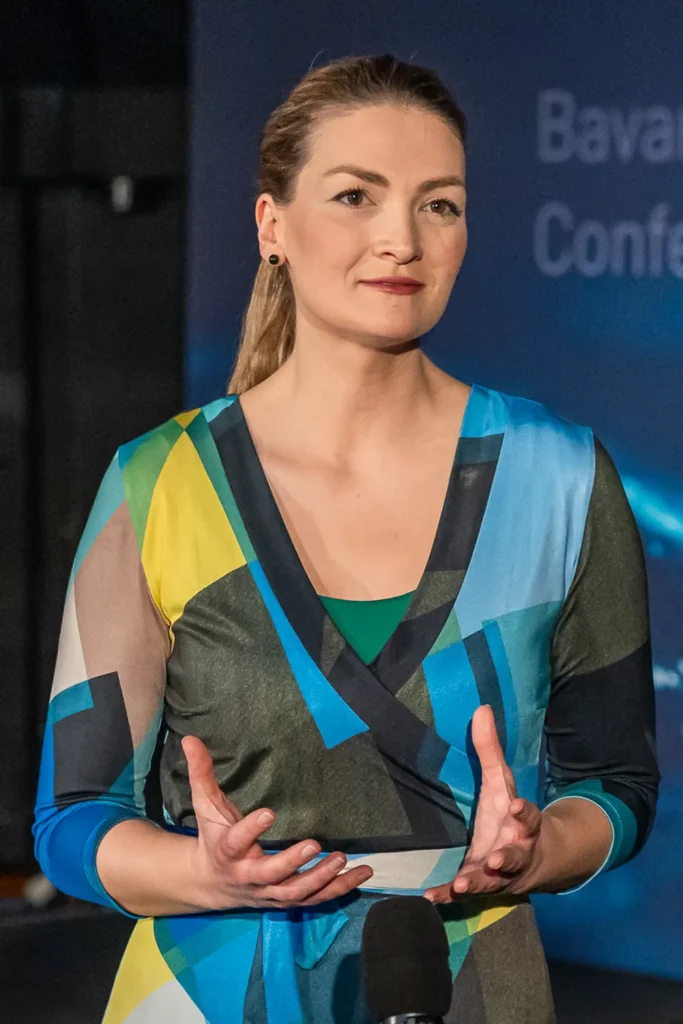
State Minister for Digital Affairs, Bavarian State Government
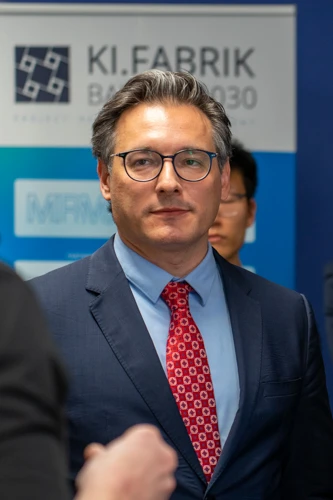
Executive Director of the Munich Institute of Robotics and Machine Intelligence (MIRMI) at TU Munich
Chair of Robotics and Systems Intelligence at Technical University of Munich
Co-Founder of Franka Emika GmbH

Student, Center for Digital Technology and Management
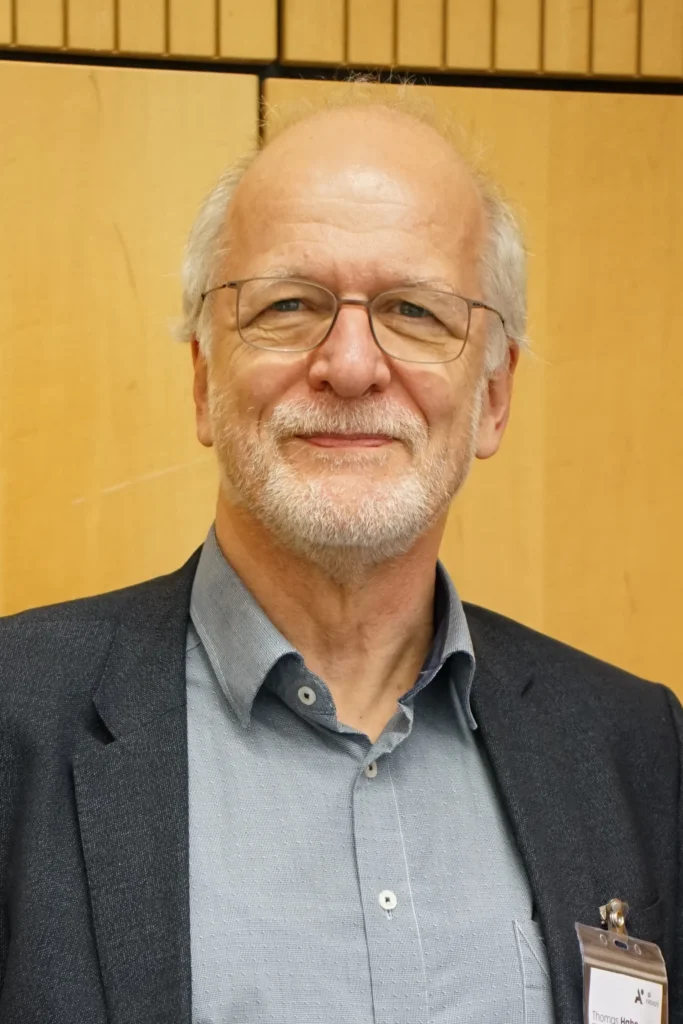
Chief Expert Software, Siemens AG; President, Big Data Value Association (BDVA)
After studying computer science, Thomas Hahn worked in various roles (e.g. head of software development for industrial automation systems) and businesses segments (e.g. manufacturing, mobility).
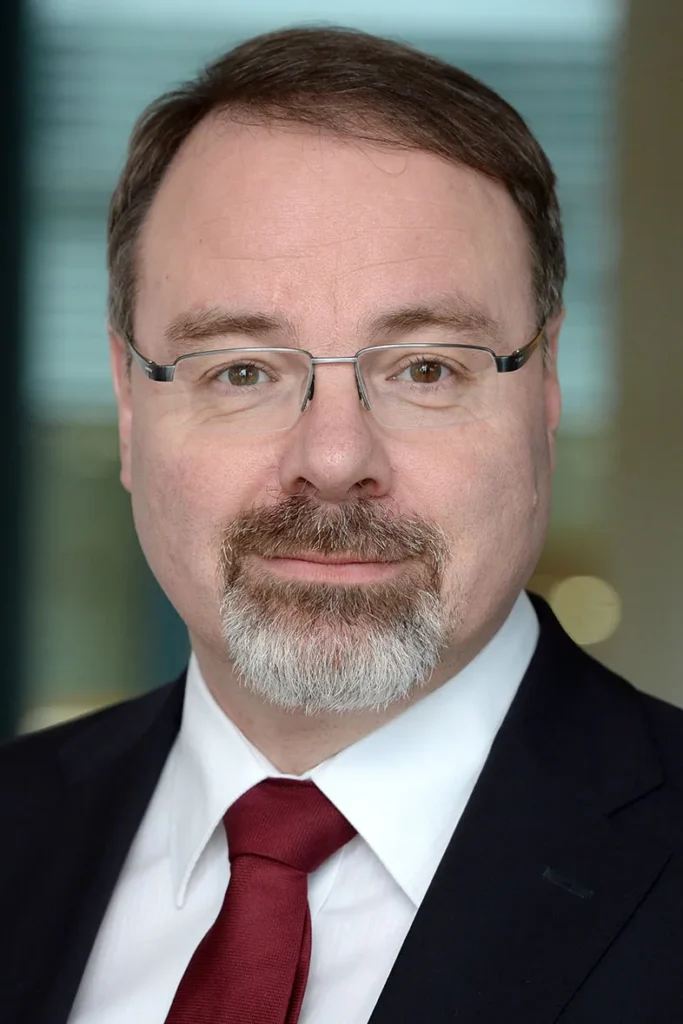
Director at the Max Planck Institute for Innovation and Competition
Co-Director at Bavarian Research Institute for Digital Transformation (BiDT)
Honorary Professor at Ludwig Maximilian University Munich
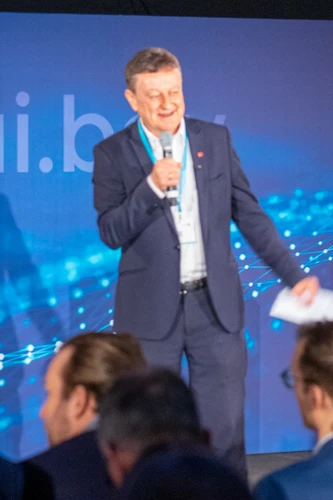
Director-General Deutsches Museum Munich
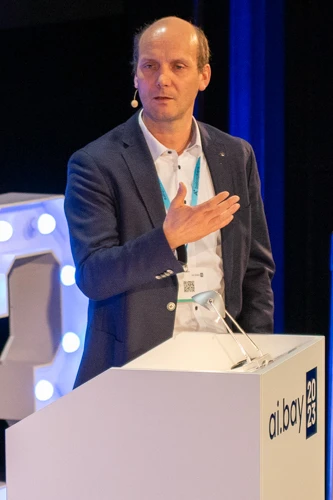
Head of Data Science Chair; Founding Spokesman of CAIDAS, University of Würzburg
Andreas Hotho is a professor at the University of Würzburg and holds the Chair of Data Science. He is the spokesman of the new Centre for Artificial Intelligence and Data Science (CAIDAS) at the JMU Würzburg. He holds a Ph.D. from the University of Karlsruhe, where he worked from 1999 to 2004 at the Institute for Applied Informatics and Formal Description Methods (AIFB) in the areas of text, data and web mining, semantic web and information retrieval. From 2004 to 2009 he was a senior researcher at the University of Kassel and from 2011 to 2018 a member of L3S in Hannover. Since 2005 he has been leading the development of the social bookmarking and publication sharing platform BibSonomy.
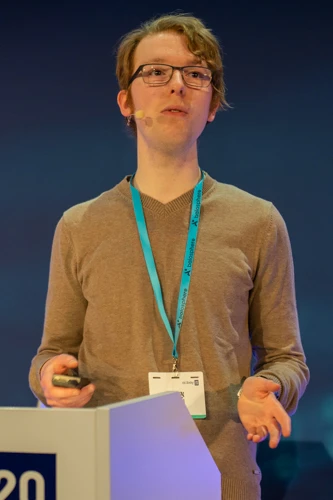
Munich Center For Machine Learning, Ludwig-Maximilians-University Munich
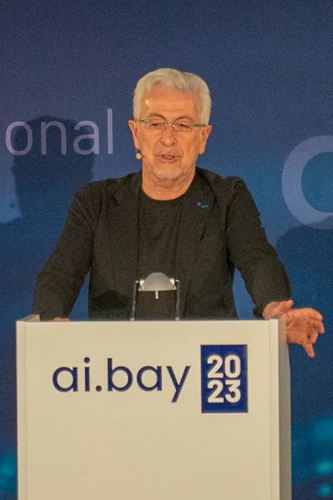
Director of Stanford Robotics Lab, Stanford University
Oussama Khatib received his PhD from Sup’Aero, Toulouse, France, in 1980. He is Professor of Computer Science and Director of the Robotics Laboratory at Stanford University. His research focuses on methodologies and technologies in human-centered robotics, haptic interactions, artificial intelligence, human motion synthesis and animation. He is President of the International Foundation of Robotics Research (IFRR), a Fellow of IEEE, Editor of the Springer Tracts in Advanced Robotics (STAR) series, the Springer Proceedings in Advanced Robotics (SPAR) series and the Springer Handbook of Robotics. His awards include the IEEE Robotics and Automation Pioneer Award, the IEEE/RAS George Saridis Leadership Award, the IEEE Distinguished Service Award, the Japan Robot Association (JARA) Award, the Rudolf Kalman Award, the IEEE Technical Field Award, and the Joseph F. Engelberger Robotics Award. Professor Khatib is a member of the United States National Academy of Engineering.
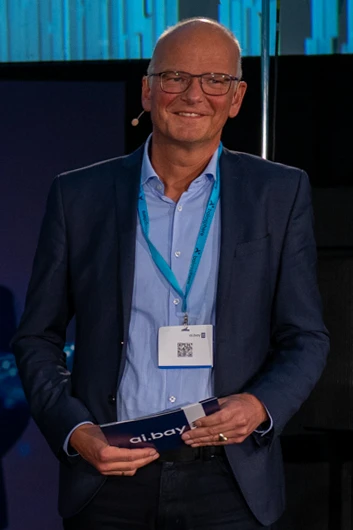
CEO Bavarian AI Agency
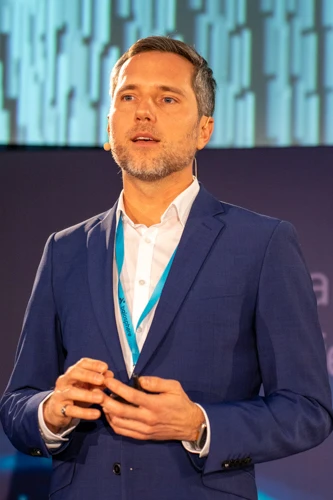
Director of the Aerial Robotics Laboratory, Imperial College London
Head of the Materials and Technology Centre of Robotics, Empa Material Science Institute, St. Gallen
Prof. Mirko Kovac is Director of the Aerial Robotics Laboratory at Imperial College London and the Head of the Materials and Technology Centre of Robotics at the Empa Material Science Institute in Switzerland. His research focusses on the development of novel, biologically inspired flying robots for distributed sensing in air and water and on autonomous robotic construction for digital infrastructure systems.
Before his appointment in London, he was post-doctoral researcher at the Harvard Microrobotics Laboratory as part of the Wyss Institute for Biologically Inspired Engineering at Harvard University in Cambridge, USA. He obtained his PhD with the Laboratory of Intelligent Systems at the Swiss Federal Institute of Technology in Lausanne (EPFL). He received his M.S. degree in Mechanical Engineering from the Swiss Federal Institute of Technology in Zurich (ETHZ) in 2005. During his studies he was research associate with the University of California in Berkeley USA, RIETER Automotive Switzerland, the WARTSILA Diesel Technology Division in Switzerland, and CISERV in Singapore.
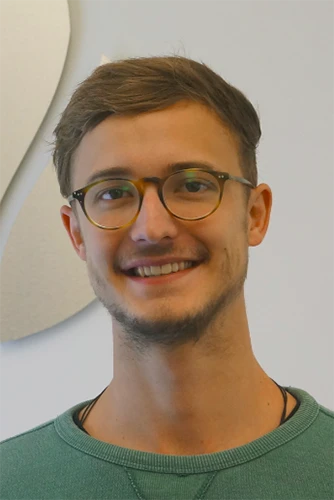
Fraunhofer Institute for Integrated Systems and Device Technology IISB
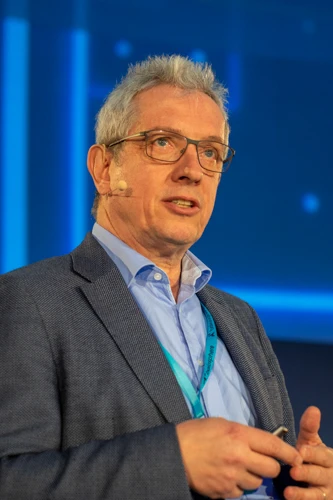
CEO and Scientific Director German Research Center for Artificial Intelligence GmbH (DFKI)
Antonio Krüger is CEO and scientific director of the German Research Center for Artificial Intelligence GmbH (DFKI) as well as scientific director of the research area „Cognitive Assistance Systems“ at DFKI.
Since 2009, he has held the Globus Endowed Professorship in Computer Science at Saarland University, is head of the Ubiquitous Media Technology Lab and scientific director of the Innovative Retail Laboratory (IRL) at DFKI.
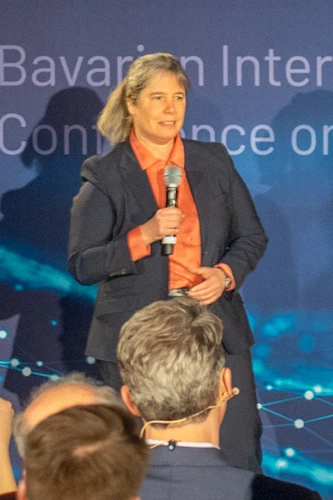
Chair of Mathematical Foundations of Artificial Intelligence, Ludwig-Maximilians-University Munich
Gitta Kutyniok currently has a Bavarian AI Chair for Mathematical Foundations of Artificial Intelligence at the Ludwig-Maximilians Universität München. She received her Diploma in Mathematics and Computer Science as well as her Ph.D. degree from the Universität Paderborn in Germany, and her Habilitation in Mathematics in 2006 at the Justus-Liebig Universität Gießen. From 2001 to 2008 she held visiting positions at several US institutions, including Princeton University, Stanford University, Yale University, Georgia Institute of Technology, and Washington University in St. Louis. In 2008, she became a full professor of mathematics at the Universität Osnabrück, and moved to Berlin three years later, where she held an Einstein Chair in the Institute of Mathematics at the Technische Universität Berlin and a courtesy appointment in the Department of Computer Science and Engineering until 2020. In addition, Gitta Kutyniok holds an Adjunct Professorship in Machine Learning at the University of Tromso since 2019.

Chair of Computer Science, Friedrich-Alexander University Erlangen-Nuremberg (FAU)

Technische Hochschule Ingolstadt
Carina Manger is a researcher in the field of Human-AI Interaction at THI Ingolstadt.
To combine technical as well as human perspectives, she obtained a Bachelor’s Degree in Psychology at the University of Vienna and a Master’s Degree in Human Factors Engineering at Technical University Munich. At THI she is now conducting experimental research that investigates how humans and intelligent vehicles can interact in a safe and efficient manner.
She is also working on a PhD in Computer Science at Johannes Kepler University Linz.
An overview on her topic “explainable human-machine interfaces for highly automated driving” will now be presented by her in the following presentation.
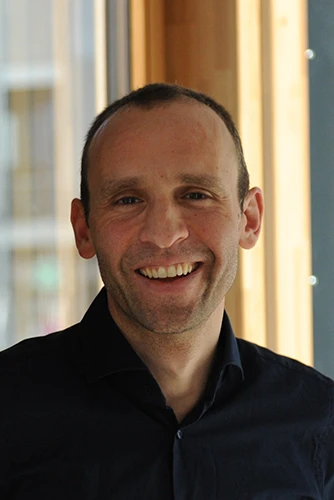
Director of the Institute of AI for Health, Helmholtz Munich
Carsten Marr received his diploma in general physics from the Technische Universität München in 2002. He wrote his thesis at the Max-Planck-Institute for Quantum Optics (Garching, Germany) and visited the Quantum Information and Quantum Optics Theory Group at Imperial College (London, UK) in 2003. In 2004, he received a PhD fellowship from the Technische Universität Darmstadt and joined the Bioinformatics Group there, working on dynamical processes on graphs and biological networks. He visited the Center for Complex Systems and Brain Sciences (Florida Atlantic University, USA) and Jacobs University Bremen (Germany) during his PhD. He received his PhD from Technische Universität Darmstadt in June 2007 and joined Jacobs University Bremen as a postdoctoral fellow, focusing on gene regulatory networks. In 2008 he joined the Helmholtz Zentrum München as a PostDoc in the Institute for Bioinformatics and Systems Biology working on the quantification, analysis, and modelling of stem cell data. In 2011, he worked on pluripotency and stochastic descriptions of gene expression at the University of Edinburgh with a stipend from the Deutsche Forschungsgemeinschaft DFG. He became deputy director and group leader at the Institute of Computational Biology in 2013. In 2017, he received the Erwin-Schrödinger Prize and the CSB2 Prize in Systems Biology for his interdisciplinary contributions to the quantification of single blood stem cells. In 2019, he received an ERC Consolidator Grant for establishing Computational Hematopathology. Since 2021 he is director of the Institute of AI for Health (AIH) at Helmholtz Munich.
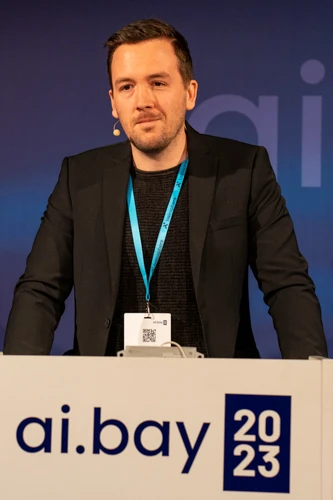
Fraunhofer AISEC; Technical University Munich
2010 – 2017: Albert-Ludwigs-Universität Freiburg – Staatsexamen Informatik & Mathematik
2018 – 2023: Dr. rer. nat. Informatik
2014 – 2016: Webdesign Freiburg – Founder & Developer
2016 – 2017: University of Freiburg – Chair of Programming Languages
2016 – present: Fraunhofer AISEC – Research & Development Scientist, Postdoctoral Researcher



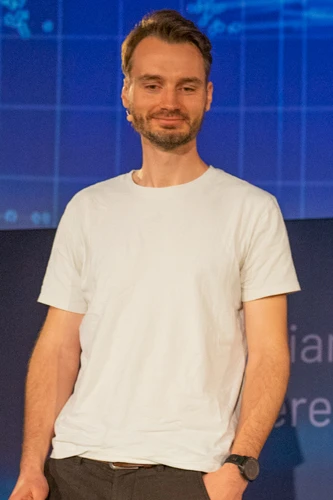
2010 – 2021: Universität Osnabrück – Bachelor, Master & PhD in Promotion Computer Science, Robotics & AI
2018: University of Auckland, Centre for Automation and Robotic Engineering Science (CARES) – Visiting Researcher
2020: University of Oxford, Oxford Robotics Institute – Visiting Researcher
2022 – present: DFKI – Senior Researcher
2022 – present: Nature Robots – CO-Founder & CEO
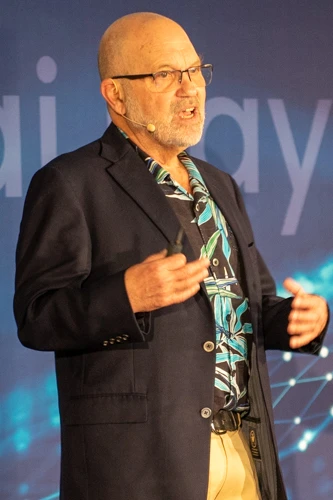
Founder, former CEO, and Executive Director of Boston Dynamics AI Instutute
Marc Raibert is executive director of The AI Institute. In this role, he drives The Institute’s strategic roadmap and spearheads recruitment efforts to achieve the organization’s mission of developing technology that enables future generations of intelligent machines.
Raibert also serves as the chairman of the board at Boston Dynamics, which he founded in 1992. A spin-off from MIT, Boston Dynamics is arguably the most influential pure-play robotics organization in the world, having produced robots such as BigDog, Atlas, Stretch, and Spot – the latter two are available for commercial purchase and used by organizations around the globe.
A lifelong roboticist, Raibert started his robotics career more than 45 years ago as a graduate student at MIT, where he wrote software that learned the dynamics of a robot manipulator. His work has influenced modern dynamic robots, including legged and mobile-manipulation robots. He was the first to create robots that balance as they walk and run, and this early focus on dynamics helped form the foundation for today’s commercialized mobile robots.
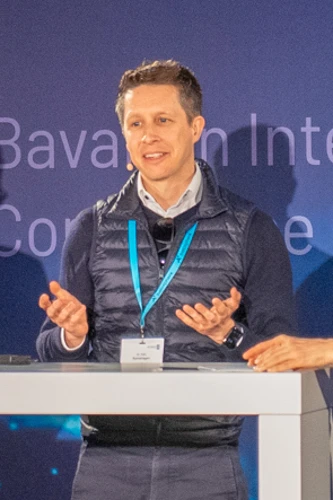
Co-Founder and CEO, NavVis
Dr. Felix Reinshagen is founder and CEO of NavVis GmbH, entrepreneur and investor in the German „deep-tech“, AI and start-up scene.
Felix Reinshagen holds degrees in Computer Science and Economics from the Karlsruhe Institute of Technology (KIT) and the University of Passau, as well as a PhD in Information Systems Research from the University of St. Gallen. In 2013, he founded NavVis GmbH with three co-founders, which now employs over 350 people worldwide and operates out of offices in Munich, NYC, LA and Shanghai. Prior to that, he was most recently an associate principal at McKinsey & Company, and before that a software engineer and IT architect. After working in St. Gallen, Hamburg, New York and Palo Alto, he now lives in Munich. Felix Reinshagen is a member of the board of DyeMansion, the global market leader for post-production in additive manufacturing, a member of the Bavarian AI Council, a member of the Scientific Advisory Board of the Bavarian Research Foundation, the Atlantik-Brücke, and a „Global Innovator“ of the World Economic Forum. He is an author and key note speaker on reality capture, augmented reality, digital twins, artificial intelligence, entrepreneurship and business management.
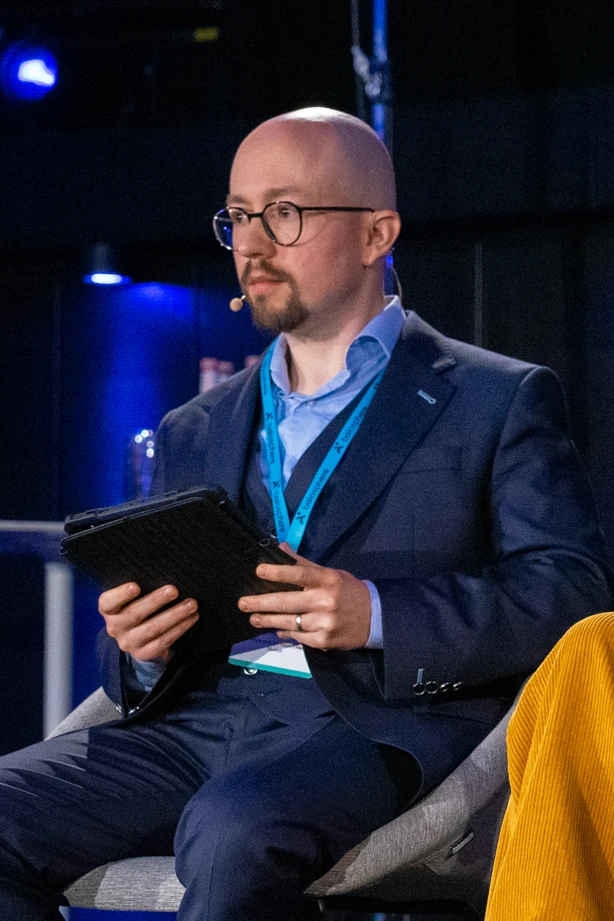
Principal Investigator, Institute of AI for Health and Helmholtz Pioneer Campus, Helmholtz Munich
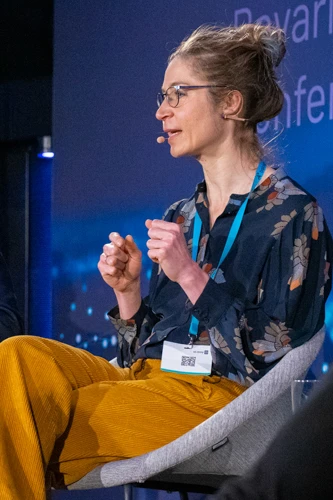
Professor at Heriot-Watt University, Edinburgh; Director NLP Research Group on Spoken Dialogue Systems and Natural Language Generation; Co-Founder and Head NLP at ALANA AI

Student, Center for Digital Technology and Managemen
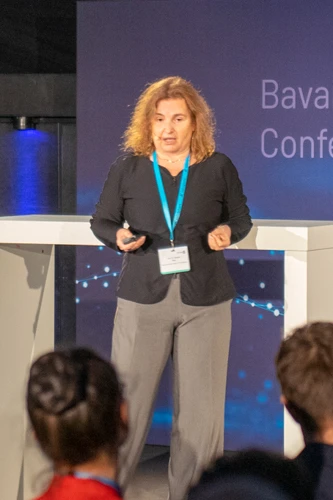
Director of the Computer Science and Artificial Intelligence Laboratory at Massachusetts Institute of Technology
Member of the United States National Academy of Engineers, and the American Academy of Arts and Sciences Fellow of the MacArthur Program, ACM, AAAI and IEEE
Daniela Rus is the Andrew (1956) and Erna Viterbi Professor of Electrical Engineering and Computer Science, and Director of the Computer Science and Artificial Intelligence Laboratory (CSAIL) at MIT.
Prof. Rus‘ research interests are in robotics and artificial intelligence. The key focus of her research is to develop the science and engineering of autonomy. Rus is a MacArthur Fellow, a fellow of ACM, AAAI and IEEE, a member of the National Academy of Engineering, and of the American Academy of Arts and Sciences. She is a senior visiting fellow at MITRE Corporation. She is the recipient of the Engelberger Award for robotics and the IEEE RAS Pioneer award. She earned her PhD in Computer Science from Cornell University.

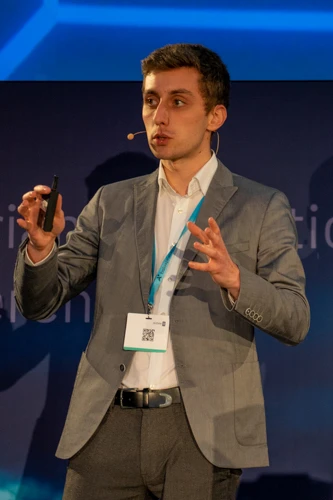
Technical Universiry of Munich
2023: TUM – Master of Science, Electrical Engineering & Information Technology
2023: Ecole polytechnique federale de Lausanne (EPFL) – MS Electrical & Electronics Engineering Applied Mathematics
2020 – 2023: Research Assistant/Intern – University Erlangen-Nuremberg, Bosch, TUM, EPFL
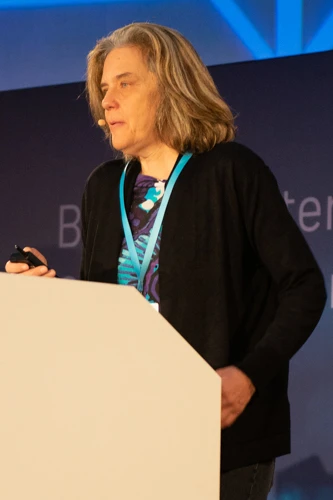
Research Director at the National Institute for Research in Digital Science and Technology Research Scientist at Google
Cordelia Schmid holds a M.S. degree in Computer Science from the University of Karlsruhe and a Doctorate, also in Computer Science, from the Institut National Polytechnique de Grenoble (INPG).
Her doctoral thesis on „Local Greyvalue Invariants for Image Matching and Retrieval“ received the best thesis award from INPG in 1996. She received the Habilitation degree in 2001 for her thesis entitled „From Image Matching to Learning Visual Models“. Dr. Schmid was a post-doctoral research assistant in the Robotics Research Group of Oxford University in 1996–1997. Since 1997 she has held a permanent research position at Inria, where she is a research director. Dr. Schmid is a member of the German National Academy of Sciences, Leopoldina and a fellow of IEEE and the ELLIS society. She was awarded the Longuet-Higgins prize in 2006, 2014 and 2016 and the Koenderink prize in 2018, both for fundamental contributions in computer vision that have withstood the test of time. She received an ERC advanced grant in 2013, the Humbolt research award in 2015, the Inria & French Academy of Science Grand Prix in 2016, the Royal Society Milner award in 2020 and the PAMI distinguished researcher award in 2021. Dr. Schmid has been an Associate Editor for IEEE PAMI (2001–2005) and for IJCV (2004–2012), an editor-in-chief for IJCV (2013–2018), a program chair of IEEE CVPR 2005 and ECCV 2012 as well as a general chair of IEEE CVPR 2015, ECCV 2020 and ICCV 2023. Starting 2018 she holds a joint appointment with Google research.
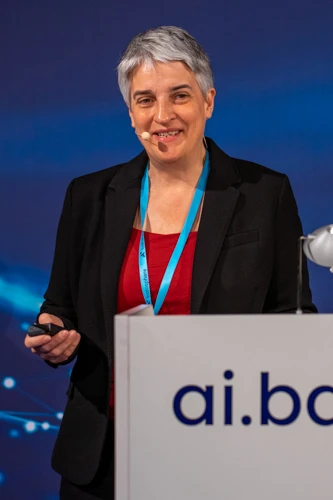
Director Institute of Machine Learning in Biomedical Imaging, Helmholtz Munich; Chair of Computational Imaging and AI in Medicine, Technical University of Munich
Julia Schnabel is Professor of Computational Imaging and AI in Medicine at Technical University of Munich (TUM Liesel Beckmann Distinguished Professorship) and Director of the Institute of Machine Learning in Biomedical Imaging at Helmholtz Munich (Helmholtz Distinguished Professorship), with secondary appointment as Chair in Computational Imaging at King’s College London.
She graduated in Informatik (computer science) from Technical University of Berlin, Germany, and was awarded the PhD in Computer Science from University College London, UK. In 2007, she joined the University of Oxford, UK as Associate Professor in Engineering Science (Medical Imaging), where she became Full Professor in 2014. She joined King’s College London as new Chair in 2015, and TUM and Helmholtz Munich in 2021 for her current positions. Her research interests include machine/deep learning, nonlinear motion modelling, multimodality and quantitative imaging, for cancer, cardiac, neuro and fetal imaging. Julia Schnabel has been elected Fellow of IEEE (2021), Fellow of ELLIS (2019), and Fellow of the MICCAI Society (2018). She is an Associate Editor of the IEEE Pattern Analysis and Machine Intelligence, on the Editorial Board of Medical Image Analysis and Executive/Founding Editor of the Journal of Machine Learning in Biomedical Imaging, a free open-access online journal. She currently serves as on the IEEE EMBS Administrative Committee, as Executive Secretary to the MICCAI board, as member of ELLIS Health and ELLIS Munich. She will be General Chair of MICCAI 2024, to be held for the first time in Africa (Marrakech, Morocco)
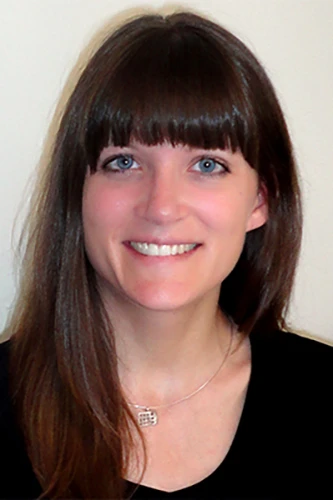
Chair of Safety, Performance and Reliability of Learning Systems, Technical University Munich
Angela Schoellig is an Alexander von Humboldt Professor for Robotics and Artificial Intelligence at the Technical University of Munich. She is also an Associate Professor at the University of Toronto Institute for Aerospace Studies and a Faculty Member of the Vector Institute in Toronto. Angela conducts research at the intersection of robotics, controls, and machine learning. Her goal is to enhance the performance, safety, and autonomy of robots by enabling them to learn from past experiments and from each other. In Canada, she has held a Canada Research Chair (Tier 2) in Machine Learning for Robotics and Control and a Canada CIFAR Chair in Artificial Intelligence, and has been a principal investigator of the NSERC Canadian Robotics Network. She is a recipient of the NSERC Arthur McDonald award (2022), the Robotics: Science and Systems Early Career Spotlight Award (2019), a Sloan Research Fellowship (2017), and an Ontario Early Researcher Award (2017). She is a Curious Minds Award winner (2022), a MIT Technology Review Innovator Under 35 (2017), a Canada Science Leadership Program Fellow (2014), and one of Robohub’s “25 women in robotics you need to know about (2013)”. Her team is the four-time winner of the North-American SAE AutoDrive Challenge (2018-21). Her PhD at ETH Zurich (2013) was awarded the ETH Medal and the Dimitris N. Chorafas Foundation Award. She holds both an M.Sc. in Engineering Cybernetics from the University of Stuttgart (2008) and an M.Sc. in Engineering Science and Mechanics from the Georgia Institute of Technology (2007).

Chair for Computational Linguistics, Director Center for Information and Language Processing, Ludwig-Maximilians-University Munich
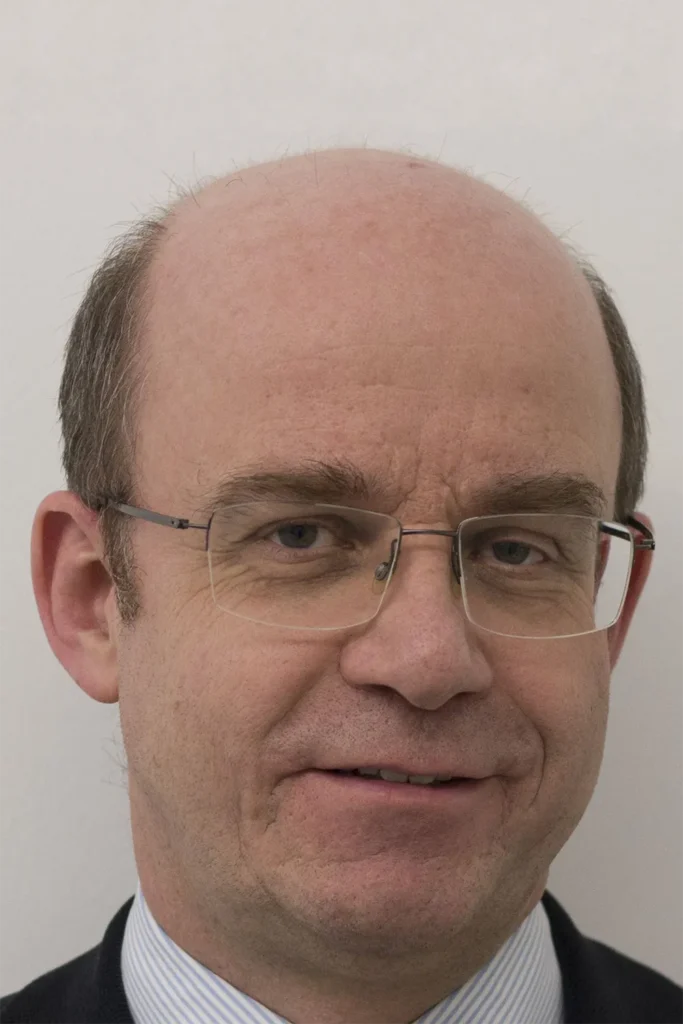
Director Munich Center for Machine Learning
Chair of Database Systems and Data Mining, Ludwig Maximilian University Munich


I studied physics at the TU München, at the Universita degli Studi di Pavia and at AT&T Research in Holmdel. During this time I was at the Maximilianeum and the Collegio Ghislieri in Pavia.
In 1996 I received a Diplom at the TU München and in 1998 the Doctoral Degree in computer science at the TU Berlin / IDA Group of the GMD (now part of Fraunhofer). In 2000 I joined the Research School for Information Sciences and Engineering of the Australian National University, full professor 2004-08, and 2004-08 as Program Leader at NICTA (now part of Data61 CSIRO). From 2008 to 2012 I worked at Yahoo! Research and from 2012-2014 at Google Research. I was faculty at the Machine Learning Department of Carnegie Mellon University from 2013-2017. I co-founded Marianas Labs in 2015. In 2016 I moved to Amazon Web Services to help build AI and Machine Learning tools for everyone, ranging from graphs to AutoML, to scalable deep learning
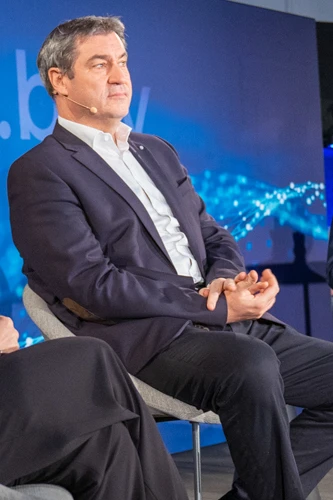
Minister President, Bavarian State Government
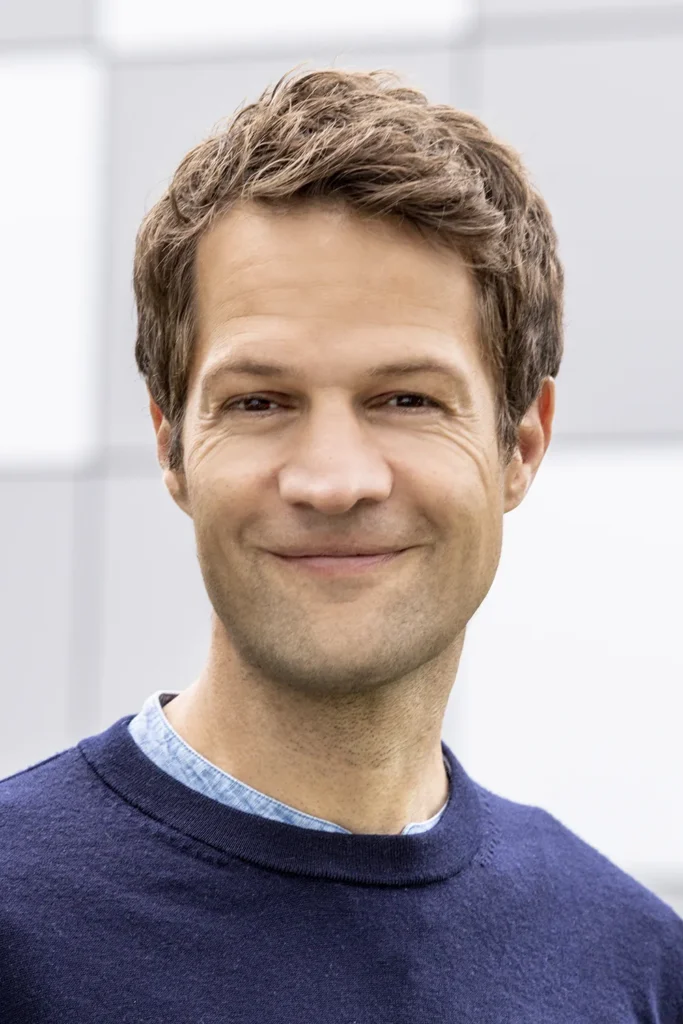
Chair of Mathematical Modeling of Biological Systems at Technical University of Munich, Director of the Institute of Computational Biology at the Helmholtz Zentrum Munich
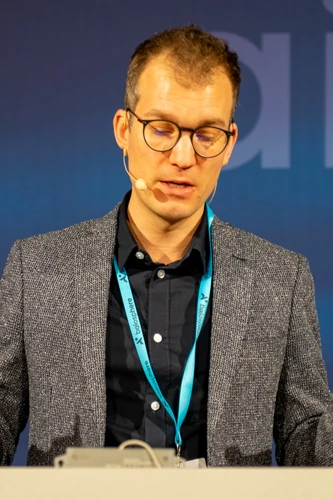
Trump studied jazz saxophone and classical saxophone at the Nuremberg University of Music from 2004 to 2009. In the course of his studies, he began to specialize in live electronics. In 2009, he received the Leonhard and Ida Wolf Memorial Prize from the city of Fürth.
In 2011, he completed the master’s degree program in Sound Studies at the Berlin University of the Arts. Since 2009, the lecturer in music realization at the Nuremberg University of Music and researches in the field of musical human-machine interaction.
In 2012, he published the iPad music app Orphion.
From 2014 to 2017, he received a scholarship from the STAEDTLER Foundation for a PhD project on genetic improvisation.
Since 2015, he has been teaching as an adjunct professor at the Department of Computer Science at the Nuremberg University of Applied Sciences Georg Simon Ohm. He lives and works in Nuremberg.
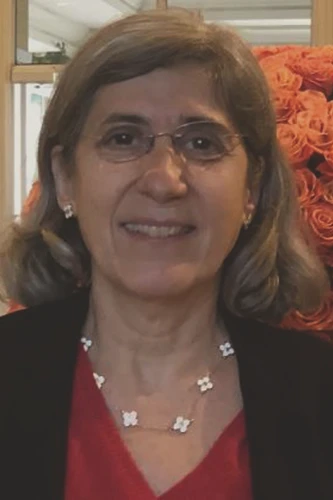
Managing Director and Head of AI Research Lab, J.P. Morgan Chase; Herbert A. Simon University Professor Emeritus, School of Computer Science, Carnegie Mellon University (CMU)
Manuela Veloso received her Licenciatura and Master of Science degree in electrical engineering from Lisbon’s Instituto Superior Técnico in 1980 and 1984 respectively. She then attended Boston University, and received a Master of Arts in computer science in 1986. She moved to Carnegie Mellon University and received her Ph.D. in computer science there in 1992. Her thesis Learning by Analogical Reasoning in General Purpose Problem Solving was supervised by Jaime Carbonell. Shortly after receiving her Ph.D., Manuela Veloso joined the faculty of the Carnegie Mellon School of Computer Science as an assistant professor. She was promoted to the rank of associate professor in 1997, and full professor in 2002. Veloso was a visiting professor at the Massachusetts Institute of Technology for the academic year 1999-2000, a Radcliffe Fellow of the Radcliffe Institute for Advanced Study, Harvard University for the academic year 2006-2007, and a visiting professor at Center for Urban Science and Progress (CUSP) at New York University (NYU) for the academic year 2013-2014. She is the winner of the 2009 ACM/SIGART Autonomous Agents Research Award. She was the Program Chair for IJCAI-07, held January 6–12, 2007, in Hyderabad, India and was program co-chair of AAAI-05, held July 9–13, 2005, in Pittsburgh. She was a member of the Editorial Board of CACM and the AAAI Magazine. She is the author of one book on Planning by Analogical Reasoning. As of 2015, Veloso has graduated 32 PhD students. She was appointed as the head of Carnegie Mellon’s Machine Learning Department in 2016.
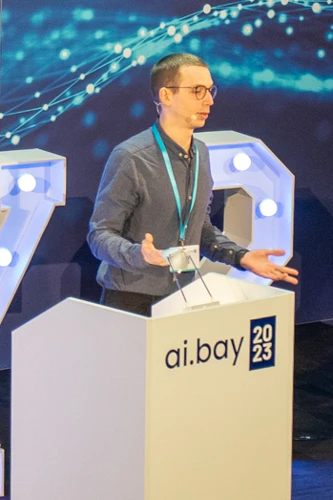
Fraunhofer Institut für Kognitive Systeme IKS
2014 – 2017 Fern Universität Hagen: Bachelor of Science, Computer Science
2018 – 2021 Universität Ulm – Master of Science, MS Cognitive Systems
2017: WIFI Vorarlberg – Computer Science Instructor
2014 – 2021: Identec Solutions – Software Engineer
2021 – present: Fraunhofer IKS – Research Engineer
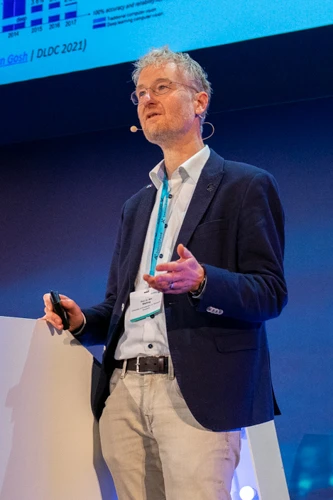
Research Chair in Machine Learning at University of Amsterdam
Distinguished Scientist at Microsoft Research
Co-Founder of cyfer BV
Prof. Max Welling is a Distinguished Scientist at Microsoft Research and research chair in Machine Learning at the University of Amsterdam.
He is a fellow at the Canadian Institute for Advanced Research (CIFAR) and the European Lab for Learning and Intelligent Systems (ELLIS) where he also serves on the founding board. His previous appointments include VP at Qualcomm Technologies, professor at UC Irvine, postdoc at U. Toronto and UCL under supervision of prof. Geoffrey Hinton, and postdoc at Caltech under supervision of prof. Pietro Perona. He finished his PhD in theoretical high energy physics under supervision of Nobel laureate prof. Gerard ‘t Hooft. Max Welling has served as associate editor in chief of IEEE TPAMI from 2011-2015, he serves on the advisory board of the Neurips foundation since 2015 and has been program chair and general chair of Neurips in 2013 and 2014 respectively. He was also program chair of AISTATS in 2009 and ECCV in 2016 and general chair of MIDL 2018. Max Welling is recipient of the ECCV Koenderink Prize in 2010 and the ICML Test of Time award in 2021.
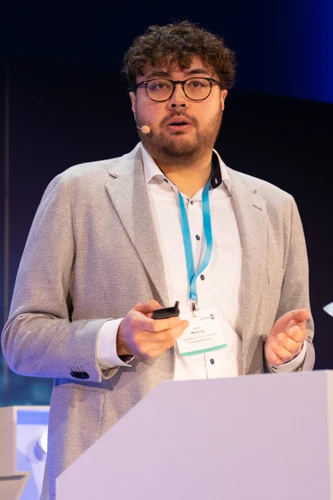
Fraunhofer IIS; Otto-Friedrich-Universität Bamberg
2013 – 2017: Ruhr-Universität Bochum – Electrical Engineering
2017 – 2020: Ruhr-Universität Bochum – Embedded Systems
2021 – now: Otto-Friedrich-Universität Bamberg – PhD
Bayerische KI-Agentur
c/o Forum der Zukunft
Museumsinsel 1
80538 München
Tel. 089/2190994-0
Fax 089/2190994-99

© 2023 Bayerische KI-Agentur
